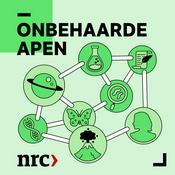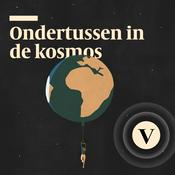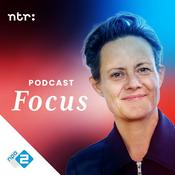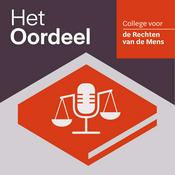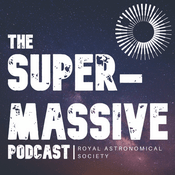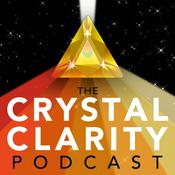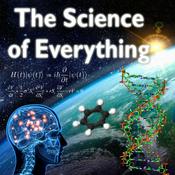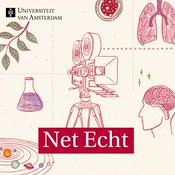35 afleveringen
- Our lives are intertwined with energy. It comes in many forms and, while it can never be lost, it can be converted from one form to another to do useful work. The energy transition is the process of shifting energy production away from sources that release greenhouse gases and towards sources that emit little or none.
In this episode, James and Daisy explore all things energy. What exactly is energy? What does a good energy system look like? And how do fossil fuels compare with green energy?
SOME RECOMMENDATIONS:
Ember (2025) – The annual slide deck from Kingsmill Bond and the Ember Futures team unpacks how electrotech is rewriting the economics and geopolitics of energy. Electrotech is around three times more efficient than fossil fuels. Around 80% of the world’s population lives in fossil-fuel-importing countries, with more than 50 countries importing over half of their primary energy as fossil fuels. In contrast, 92% of countries have renewable energy potential more than ten times their current demand.
Our World in Data – Data, visualizations, and writing relating to energy. This article explains primary, secondary, final and useful energy – the four stages of the energy chain – and why these distinctions matter.
BloombergNEF (2025) – Michael Liebreich makes the case for a pragmatic climate reset, showing what happens if clean energy outgrows energy demand by 3% per year for the next four decades.
OTHER ADVOCATES AND RESOURCES:
John Elkington (2025) – A blog on ‘How—And Where—To Channel Our Energy?’
Cleaning Up (2025) – A visual showing how much energy Egypt can buy for $1m, comparing oil, LNG, solar, wind, and nuclear.
RMI (2024) – Today’s fossil energy system is incredibly inefficient: almost two-thirds of all primary energy is wasted during energy production, transportation, and use, before any useful work is done. That’s over $4.6 trillion per year, nearly 5% of global GDP and 40% of total energy spending, effectively lost to fossil fuel inefficiency. Around 45% of total shipping demand is for transporting fossil fuels, with roughly $42 billion per year spent on fossil fuels to ship other fossil fuels.
Xlinks – A 2,500-mile subsea cable to bring renewable energy from Morocco to the UK.
Sulfurcell – A German company founded in 2001 to develop and produce thin film solar cells based on copper indium sulfide (CIS) technology. The company went into administration in 2012.
NESO – ‘Energy 101’ by the UK’s National Energy System Operator.
Our World in Data (2021) – Energy sources are often reported using different metrics. This article explains how primary energy is measured. A typical coal plant in the US has an efficiency of 33% – only one-third generates electricity, while the rest is lost as heat. Gas performs slightly better, at around 45% efficiency. In popular datasets, coal and gas are reported in primary energy terms (the fuel going into the power plant), while renewable electricity – such as solar and wind – is reported based on electricity output.
Ember (2025) – China’s wind generation was 992 TWh in 2024, accounting for 40% of global wind generation.
Ember (2026) – India is electrifying faster and using fewer fossil fuels per capita than China did when it was at a similar stage of economic development.
Ember (2025) – Solar and wind outpaced the growth in global electricity demand in the first half of 2025, resulting in a very small decline in both coal and gas compared to the same period last year.
BBC (2025) – The price of silver hit a record high ahead of an expected US Federal Reserve interest rate cut, driven in part by strong demand from the technology sector.
Thank you for listening! Please follow us on social media to join the conversation:
LinkedIn | Instagram | TikTok
You can also now watch us on YouTube.
Music: “Just Because Some Bad Wind Blows” by Nick Nuttall, Reptiphon Records. Available at https://nicknuttallmusic.bandcamp.com/album/just-because-some-bad-wind-blows-3
Producer: Podshop Studios
Huge thanks to Siobhán Foster, a vital member of the team offering design advice, critical review and organisation that we depend upon.
Stay tuned for more insightful discussions on navigating the transition away from fossil fuels to a sustainable future. - The Middle East and North Africa (MENA) region sits at the heart of the world’s energy system, home to many of the top oil and gas producers. Yet it also one of the most climate-vulnerable regions, with huge renewable energy potential.
In this episode, James and Daisy discuss the region’s climate challenges. How is MENA impacted by climate change? Is the region serious about the energy transition? What were the key takeaways from Abu Dhabi Sustainability Week?
SOME RECOMMENDATIONS:
Masdar – A fast-growing renewable energy company owned by three UAE energy companies (ADNOC, Mubadala Investment Company, and TAQA) with projects in 40+ countries across six continents with a combined capacity of more than 65GW. COP28 President Dr Sultan Al Jaber chairs Masdar while also leading ADNOC. Masdar is building the world’s largest solar-plus battery project, that will run 24 hours a day, displacing 5.7 million tons of CO2 annually – equivalent to planting 100 million trees and covering 90 square kilometres, roughly the size of Copenhagen.
Zayed Sustainability Prize – The UAE's global award that recognises SMEs, nonprofits, and schools with impactful sustainable solutions. This year’s Energy winner was Switzerland’s BASE Foundation with its cooling-as-a-service solution. Ignite Energy Access, a UAE-based climate-tech company scaling sustainable infrastructure solutions across Africa won the Energy Innovation category at COP28.
OTHER ADVOCATES AND RESOURCES:
Abu Dhabi Sustainability Week (ADSW) – One of the world’s largest sustainability gatherings, hosted by Masdar.
Our World in Data – A graph of oil production by region shows that roughly one third comes from the Middle East.
Ember (2025)– In 2023, 7% of the Middle East’s electricity was generated from clean sources, below the global average of 39%. Saudi Arabia aims for 50% renewable electricity by 2030.
IEA (2025) – In 2024, MENA supplied over 30% of the world’s oil and nearly 20% of its natural gas. Between 2000 and 2024, electricity demand tripled – making the MENA region the third-largest contributor to global electricity demand growth after China and India. Average temperatures in MENA are rising at more than twice the global rate, and summer temperatures regularly exceed 40 °C.
Financial Times (2025) – How plans for the utopian city of Neom have unravelled.
BloombergNEF (2025) – Michael Liebreich makes the case for a pragmatic climate reset.
Cleaning Up (2025) – Liebreich in conversation with Lord Browne, former CEO of BP.
Breakneck by Dan Wang (2025) – Shows how the cost of one US nuclear plant equals roughly 11 in China.
Cleaning Up (2025) – A visual showing how much energy Egypt can buy for $1m, comparing oil, LNG, solar, wind, and nuclear.
SOME FACTS:
Investopedia: The MENA region includes Algeria, Bahrain, Djibouti, Egypt, Iran, Iraq, Israel, Jordan, Kuwait, Lebanon, Libya, Malta, Morocco, Oman, Qatar, Saudi Arabia, Syria, Tunisia, United Arab Emirates, Palestine, and Yemen.
IEA – MENA holds five of the world’s top 10 oil producers (Saudi Arabia, Iraq, the United Arab Emirates, Iran and Kuwait) and three of the top 20 gas producers. Nearly 95% of electricity generated in the Middle East comes from natural gas and oil – the highest share in the world.
World Bank (2025) – MENA holds more than half of the world’s oil reserves and 40% of gas reserves.
World Bank (2022) – MENA’s GHG footprint is 8.7% of global emissions. MENA is the world’s most water scarce region with 60% of people living in high or extremely high water stressed areas. MENA receives 22-26% of all solar energy striking the earth and its solar potential per square kilometre is equivalent to energy produced by 1-2 million barrels of oil annually and could meet at least 50% of global electricity demand. 75% of MENA has average wind speeds that exceed the minimum threshold for utility-scale wind farms.
Earth.Org (2025) – Saudi Aramco accounts for 4.38% of global CO2 emissions.
The Guardian (2025) – Saudi Arabia spent more on fossil fuel subsidies than it did on its national health budget in 2023.
NY Times (2025) – Over the past year, EVs accounted for 76% of all passenger vehicles sold in Nepal.
WRI (2025) – In 2024, EVs made up 92% of passenger vehicle sales in Norway.
Thank you for listening! Please follow us on social media to join the conversation:
LinkedIn | Instagram | TikTok
You can also now watch us on YouTube.
Music: “Just Because Some Bad Wind Blows” by Nick Nuttall, Reptiphon Records. Available at https://nicknuttallmusic.bandcamp.com/album/just-because-some-bad-wind-blows-3
Huge thanks to Siobhán Foster, a vital member of the team offering design advice, critical review and organisation that we depend upon.
... - Demand for digital services has exploded — and with it, the rapid expansion of data centres providing the compute power behind everything from streaming and cloud storage to AI. But this growth could have serious climate consequences.
In this episode, James and Daisy explore the rise of data centres. What exactly are they? Why are they becoming so central to our lives? And how can we guide their future growth to align with our climate goals?
SOME RECOMMENDATIONS:
Cleaning Up (2025) – An on-location podcast episode where Michael Liebreich visits Sines, Portugal, where Start Campus is building a data centre, set to be Europe’s largest.
Carbon Brief (2025) – Five charts on data centre energy use and emissions.
Brookings (2025) – Analysis on the future of data centres.
OTHER ADVOCATES AND RESOURCES:
Green Mountain – SVG-Rennesøy is a Norwegian Tier III mountain hall data centre built inside a former high security NATO ammunition storage facility and cooled by fjord seawater.
The Guardian (2025) – Google plans to put AI data centres into space, with the first trial equipment sent into orbit in early 2027. Solar panels powering these data centres could be up to eight times more productive than those on Earth.
Terrestrial Energy – A developer of Generation IV nuclear plants using proprietary Integral Molten Salt Reactor (IMSR) technology.
NESO – The National Energy System Operator for Great Britain, responsible for electricity system planning amid rising demand.
BBC (2023) – The waste heat from a washing-machine-sized data centre is being used to heat a public swimming pool in Devon.
Bloomberg (2025) – Finland and Sweden are pairing data centres with district heating systems.
WEF (2020) – Microsoft’s ‘Project Natick’ tested a shipping-container-sized underwater data centre off the coast of Orkney, Scotland, finding it was eight times more reliable than land-based equivalents.
Kraken – An all-in-one, smart operating system automating much of the energy supply chain, supporting efficiency and flexibility as energy systems decarbonise.
SOME FACTS:
MIT News (2025) – The first data centre was built at the University of Pennsylvania in 1945 to support the ENIAC, the first general-purpose digital computer.
IEA (2023) – Since 2010, the number of internet users worldwide has more than doubled, while internet traffic has increased 25-fold. Data centres and data transmission networks each account for 1-1.5% of global electricity use and around 1% of energy-related GHG emissions.
UK Parliament (2025) – Data centres consume around 2.5% of the UK’s electricity, with demand expected to quadruple by 2030.
GOV.UK (2024) – Data centres are designated as Critical National Infrastructure, alongside energy and water systems.
BBC (2025) – There are an estimated 500 data centres operating across the UK.
McKinsey (2025) – By 2030, $6.7 trillion in global investment in data centres will be needed to meet demand for compute power, of which 70% will come from AI workloads. Demand for AI-ready data centre capacity is expected to grow by 33% per year between 2023 and 2030. By 2030, up to 65% of AI workloads in Europe and the United States will be hosted on hyperscalers’ infrastructure.
Ofgem (2006) – One megawatt-hour (MWh) equals 1,000 kilowatt hours – roughly enough to power around 2,000 homes for one hour.
MIT Sloan School of Management (2025) – When the full cost of delivering AI to customers is included, data centres could account for up to 21% of global energy demand by 2030.
WEF – Power use in data centres is typically split between IT equipment (40–50%), cooling systems (30–40%), and auxiliary systems such as lighting and security (10–30%).
NY Times (2025) – Google, Microsoft, Amazon and Meta spent more than $360 billion in capital expenditures over 12 months.
CSO (2023) – Data centres already account for over 20% of Ireland’s total electricity consumption.
IEA (2024) – Nearly one-third of Ireland’s electricity demand is expected to come from data centres by 2026.
WEF (2025) – Climate hazards such as extreme heat and drought could add $81 billion per year in costs to data centres globally by 2035.
The Guardian (2025) – More than 230 environmental groups have called for a national moratorium on new US data centres, citing rising electricity bills and worsening climate impacts.
CNBC (2025) – Google, Oracle and Microsoft estimate AI hardware lifespans of up to six years, but sceptics such as short seller Michael Burry argue that they may be significantly shorter.
Thank you for listening! Please follow us on social media to join the conversation: - The COP – or ‘Conference of the Parties’ – is the supreme decision-making body of the United Nations Framework Convention on Climate Change (UNFCCC). In November 2025, COP30 took place in Belém, Brazil – the thirtieth of these annual meetings and a milestone marking ten years since the Paris Agreement. As with many COPs, reactions to the final outcomes were mixed.
In this episode, James and Daisy reflect on COP30 and look ahead to what comes next. What were the most significant outcomes? What is the plan for COP31? How might the COP process itself be reformed?
SOME RECOMMENDATIONS:
Mutirão Decision – The central outcome text from COP30. “Mutirão,” a term from the Tupi-Guarani language meaning “collective efforts,” was adopted by the COP30 Presidency as the guiding theme to inspire global climate action.
Inside COP – A special edition of the Outrage + Optimism podcast, created in partnership with the COP30 Presidency, offering exclusive behind-the-scenes insights from the negotiations.
OTHER ADVOCATES AND RESOURCES:
Carbon Brief (2025) – A clear summary of COP30 outcomes, including the agreement to triple adaptation finance by 2035 and the establishment of a just transition mechanism. Although more than 80 countries supported a roadmap to phase out fossil fuels, the final text did not include such a reference.
NDC Tracker – A live tracker showing which countries have submitted updated Nationally Determined Contributions (NDCs).
WRI (2025) – An analysis of COP30’s achievements and shortfalls. By the close of the conference, 119 countries — representing 74% of global emissions — had submitted new NDCs. While these reflect progress, together they deliver less than 15% of the emissions reductions needed by 2035 to keep warming to 1.5°C.
UNEP (2025) – Current projections estimate global warming of 2.3–2.5°C if all NDCs are fully implemented, and around 2.8°C based on current policies. Since the adoption of the Paris Agreement ten years ago, temperature predictions have fallen from 3-3.5°C.
The Fossil Fuel Non-Proliferation Treaty Initiative – In response to the absence of fossil fuel language in the COP30 text, Colombia and the Netherlands announced they will co-host the First International Conference on the Just Transition Away from Fossil Fuels, to be held 28–29 April 2026 in Santa Marta, Colombia — a key coal-exporting port city.
UNFCCC (2025) – Türkiye will host COP31, including the World Leaders’ Summit. The Pre-COP will be hosted in a Pacific Island country, supported by Australia. A representative of Türkiye will serve as COP31 President-Designate from the close of COP30, with an Australian representative appointed as President of Negotiations.
IISD (2015) – Background on the Major Economies Forum on Energy and Climate (MEF), launched in 2009 to foster candid dialogue among major emitters and build political momentum for climate action.
Thank you for listening! Please follow us on social media to join the conversation:
LinkedIn | Instagram | TikTok
You can also now watch us on YouTube.
Music: “Just Because Some Bad Wind Blows” by Nick Nuttall, Reptiphon Records. Available at https://nicknuttallmusic.bandcamp.com/album/just-because-some-bad-wind-blows-3
Producer: Podshop Studios
Huge thanks to Siobhán Foster, a vital member of the team offering design advice, critical review and organisation that we depend upon.
Stay tuned for more insightful discussions on navigating the transition away from fossil fuels to a sustainable future. - More than half of the world’s population now lives in cities – and that number keeps growing. Cities are engines of opportunity and economic growth, but they also generate vast amounts of waste, pollution, and emissions. Yet by bringing together people, ideas, and investments, cities also become hubs of innovation where climate solutions can emerge and scale.
In this episode, James and Daisy explore the relationship between climate and cities. How is climate change reshaping urban life? How are cities adapting? And how can cities lead the way towards a more sustainable future?
SOME RECOMMENDATIONS:
C40 Cities – A network of nearly 100 mayors taking collective action on climate. 3 in 4 C40 cities are reducing per capita emissions faster than their national governments.
Cities & Regions Hub at COP30 – Elevates the role of subnational governments as key actors in the COP process and anchors their contributions to the global climate agenda.
OTHER ADVOCATES AND RESOURCES:
Sustainable Development Commission – Formerly the UK Government's independent adviser on sustainable development (closed in 2011).
Clover Hogan (2024) – People should stop buying electric cars and instead ask, “how do we redesign mobility?”
SUN Mobility – Aims to establish one of the largest battery swapping networks by 2030, accelerating the adoption of electric vehicles.
Smart Surfaces Coalition – Helps cities make “smart” surface decisions by demonstrating the value of surfaces that manage the sun and rain.
The Wildlife Trusts (2022) – Bauer Outdoor Media aimed to have instal 150 bee bus stops across the UK by the end of 2022.
ULEZ – London’s Ultra Low Emission Zone is the largest clean air zone in the world.
Sadiq Khan (2025) – “It was predicted to take 193 years to meet legal limits for air pollution in London – we did it in 9.”
London National Park City – Declared in July 2019, with 49.7% of the city made up of green and blue space.
Wild West End – A partnership between property owners (including The Crown Estate) to create ecological corridors between London’s Royal Parks and garden squares.
LBC (2025) – Oxford Street was car-free for a day and footfall rose nearly 50% as thousands rediscovered the joy of a truly public space.
BBC (2024) – Honeybees account for 57% of all pollinating insects within the City of London despite being only one of 270 UK bee species.
Paris – The 2021-2026 cycling plan aims to make Paris a fully cycle-friendly city, expanding bike infrastructure, secure parking systems, and the cycling ecosystem.
Barcelona – The Master Plan for Barcelona’s Trees 2017-2037 aims to increase the city’s tree cover by 5% so that 30% of the city is covered by trees.
The Guardian (2025) – In Jerez de la Frontera in Spain green canopies of grapevines cool streets by up to 8°C.
UNDP (2024) – In Lima, Peru, fog catcher technology and automated irrigation are used to harvest water from fog oases. In Lagos, Nigeria, economic losses from flooding are already US$4 billion per year. Indonesia is set to replace Jakarta, the world's fastest-sinking city, with a newly planned capital that has yet to be built.
Singapore – The “garden city” vision was introduced by then Prime Minister Lee Kuan Yew on 11 May 1967.
BBC (2024) – Nearly half of China's major cities are sinking due to water extraction and the increasing weight of their rapid expansion. Shanghai has sunk over 3m in a century.
NEOM – A futuristic mega-project in Saudi Arabia designed to harness technology, sustainability, and development.
SOME FACTS:
UNEP – Cities only occupy 3% of the Earth’s land surface.
World Bank – Over 4 billion people live in cities. By 2050, it will be nearly 7 in 10. Cities produce over 70% of global GHG emissions and account for 80% of global GDP. Since 1985, over 75,000 km2 of new urban land, equivalent to about 50 times the area of Greater London, has been developed in areas prone to severe flooding.
IPCC (2021) – Urban emissions rose from 25 GtCO2-eq (about 62% of global share) in 2015 to 29 GtCO2-eq (67–72%) in 2020.
UNEP – Cities consume over 75% of natural resources.
UNEP (2021) – The world’s cities are heating up at twice the global average rate due to rapid urbanization and the urban heat island effect. By 2100, many cities could warm as much as 4°C.
WEF (2018) – By 2100, 13 of the world’s largest megacities will be located in Africa; none in the Americas, China, or Europe.
Thank you for listening! Please follow us on social media to join the conversation:
LinkedIn | Instagram |
Meer Wetenschap podcasts
Trending Wetenschap -podcasts
Over Fossil vs Future
This is Fossil vs Future, a warm conversation between generations on climate change.
-
Each podcast episode will be focusing on a different climate-related challenge, as godfather and goddaughter, James and Daisy, share their individual experiences and perspectives, with the hope of fostering understanding between generations.
-
James is at the later stage of his working life dedicated to dealing with climate change, through law, finance, and social entrepreneurship, and Daisy is at an earlier stage of her career, equally focused on the climate and how to drive systemic change through her experience in the finance, business, and non-profit sectors.
-
We want to use intergenerational dialogue as a tool to learn, inspire, and get stuff done!
-
LinkedIn | https://www.linkedin.com/company/fossil-vs-future
Instagram | https://www.instagram.com/fossil_vs_future
TikTok | https://www.tiktok.com/@fossil_vs_future
Podcast websiteLuister naar Fossil vs Future, We zijn toch niet gek? en vele andere podcasts van over de hele wereld met de radio.net-app
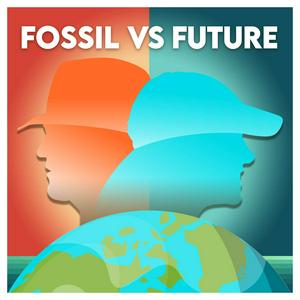
Ontvang de gratis radio.net app
- Zenders en podcasts om te bookmarken
- Streamen via Wi-Fi of Bluetooth
- Ondersteunt Carplay & Android Auto
- Veel andere app-functies
Ontvang de gratis radio.net app
- Zenders en podcasts om te bookmarken
- Streamen via Wi-Fi of Bluetooth
- Ondersteunt Carplay & Android Auto
- Veel andere app-functies


Fossil vs Future
Scan de code,
download de app,
luisteren.
download de app,
luisteren.






